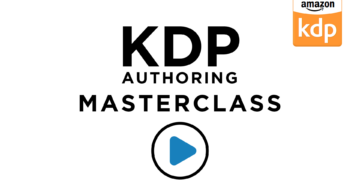Steering and controlling conversations is a valuable interpersonal skill.
Effective conversation is more than just an exchange of words; it’s an art that requires a blend of active listening, empathy, and strategic guidance. The ability to steer and control conversations is not just a tool for leaders or negotiators but is a vital interpersonal skill that can be invaluable in both personal and professional contexts. Whether you’re hoping to navigate a challenging topic, foster deeper connections, or lead discussions toward a desired outcome, mastering the flow of dialogue can be instrumental.
By implementing adept conversation steering, you can avoid several pitfalls: misunderstandings that may strain relationships, unproductive tangents that waste precious time, conflicts that escalate unnecessarily, and missed opportunities to gain insights or reach beneficial outcomes. A well-steered conversation can mitigate these risks, promoting a more harmonious and productive dialogue.
Steering a conversation doesn’t mean manipulating it but rather guiding it in a way that promotes clarity, understanding, and mutual respect. In the guidelines below, we will delve into the nuances of how to masterfully manage the dynamics of any conversation, ensuring that the exchange is both meaningful and productive for all participants.
- Active Listening: Before you can effectively steer a conversation, you need to truly understand the other person’s perspective. This requires active listening. Pay close attention, make eye contact, and give feedback to ensure the speaker knows they’re being heard.
- Ask Open-ended Questions: These types of questions can’t be answered with just a “yes” or “no”. By asking open-ended questions, you encourage deeper exploration of topics and can guide the conversation in the direction you wish.
- Manage Your Non-verbal Cues: Your body language, facial expressions, and tone of voice can communicate even more than your words. Ensure they are consistent with your intent and messages.
- Set Clear Objectives: If you have a specific goal for the conversation, keep it in mind throughout. This will help you guide the discussion in a way that serves that goal.
- Use Transitional Phrases: If you need to redirect a conversation, use transitional phrases like “On a related note…”, “Speaking of which…”, or “Another thing to consider is…”.
- Acknowledge and Paraphrase: By repeating back what someone has said (in your own words), you not only show that you’ve listened, but you can subtly steer the conversation based on how you choose to paraphrase.
- Be Respectful: If you need to change the topic or steer away from something sensitive, do so with care and consideration. It’s essential to avoid making the other party feel dismissed or invalidated.
- Set Boundaries: If there are topics you’d rather not discuss or areas you’re not comfortable exploring, it’s okay to set boundaries. Just be clear and polite about it.
- Use Silence: Pausing before you speak can give you time to think and also creates a space for the other person to jump in, potentially guiding the conversation in the direction you’d like.
- Encourage Others to Speak: If you’re trying to steer a conversation, it’s not always about doing all the talking. By prompting others to share their views, you can often guide the conversation effectively.
- Manage Conflicts Gracefully: If disagreements arise, address them with patience and understanding. Ask clarifying questions, and try to find common ground. This can help in regaining control and steering the conversation towards a productive outcome.
- Practice Reflective Listening: This technique involves reflecting back emotions and feelings you’ve sensed from the other person. It can help in clarifying what the other person is trying to convey and show that you’re tuned into their emotional state.
Remember, steering a conversation isn’t about manipulating or dominating it. The goal is to guide the dialogue in a way that’s beneficial for all involved, ensuring that everyone feels heard and understood.
Here are 3 recommended books on effective communication and steering conversations, that will change your influence and the outcomes of your interactions with people forever (Click on the Title To Get the Book):
- “How to Win Friends and Influence People” by Dale Carnegie (Click Here)
– Synopsis: Originally published in 1936, this book remains a classic in the realm of interpersonal skills. Carnegie offers timeless principles on how to connect with others, influence their perspectives, and cultivate mutual respect.
– How it Helps: Carnegie emphasizes the importance of understanding the perspective of others, showing genuine interest, and acknowledging their viewpoints. By applying his principles, readers can become more adept at steering conversations in a positive direction while fostering deeper connections.
- “Crucial Conversations: Tools for Talking When Stakes Are High” by Kerry Patterson, Joseph Grenny, Ron McMillan, and Al Switzler (Click Here)
– Synopsis: This book addresses the challenges of communicating when emotions run high, stakes are significant, and opinions vary. The authors offer tools and techniques to navigate these crucial conversations successfully, ensuring that dialogue remains productive and relationships remain intact.
– How it Helps: “Crucial Conversations” provides readers with a framework for approaching sensitive topics and disagreements. By utilizing the strategies outlined, one can effectively steer difficult conversations towards resolution, mutual understanding, and positive outcomes, avoiding the pitfalls of miscommunication and conflict.
– Synopsis: Chris Voss, a former international hostage negotiator for the FBI, shares negotiation techniques that can be applied in everyday life. While the book primarily focuses on negotiation, the underlying principles revolve around effective communication, understanding human behavior, and influencing outcomes.
– How it Helps: Voss introduces techniques like “mirroring,” “labeling,” and the “accusation audit” to help steer conversations and negotiations in one’s favor. These tactics are invaluable for guiding discussions, managing emotions, and achieving desired results in various scenarios, from business deals to personal interactions.
Each of these books provides valuable insights and practical tools for anyone looking to enhance their conversation steering skills and improve their overall communication effectiveness.























